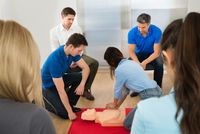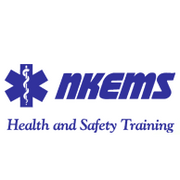How CPR & First Aid Training Can Benefit You

It’s no secret that CPR and first aid training can be a lifesaver. However, many people fail to recognize the many benefits of receiving a first aid certification, which extends beyond the obvious advantage of being useful during an emergency medical event. The following are a few of the many reasons why you should become CPR and first aid certified.
The Power to Save Lives
The ability to save a life is powerful. Consider what would happen if a person experienced a cardiac event in your workplace or at your home. On a yearly basis, approximately 383,000 cardiac arrests happen outside of a hospital. In many cases, these individuals lose their lives even with timely medical intervention. With CPR and first aid training, the chance of a person surviving a heart attack doubles or triples.
Knowledge of Life-Saving Equipment
 Part of your training will involve the use of automated external defibrillators (AED). These devices restore a heart’s natural rhythm after an attack, which buys more time when awaiting the arrival of emergency personnel. Consider that it can take eight minutes or longer for an ambulance to arrive on average. While these devices are simple enough to use by most people, proper training is crucial to ensure they’re used effectively. Also, AEDs are most effective when used in conjunction with CPR.
Part of your training will involve the use of automated external defibrillators (AED). These devices restore a heart’s natural rhythm after an attack, which buys more time when awaiting the arrival of emergency personnel. Consider that it can take eight minutes or longer for an ambulance to arrive on average. While these devices are simple enough to use by most people, proper training is crucial to ensure they’re used effectively. Also, AEDs are most effective when used in conjunction with CPR.
Peace of Mind
Perhaps the biggest benefit offered by first aid training is the peace of mind it affords. Whether you’re at home with your family, at work, or out with friends, you can rest assured that you’ll be able to respond quickly when it comes to saving a person’s life. This also offers significant relief to those around you, especially if they have health conditions that increase the risk of cardiac arrest. You can also encourage others to get certified to satisfy the growing need for CPR-trained individuals.
Northern KY Emergency Medical Services offers CPR and first aid training to individuals in the Greater Cincinnati area. This non-profit organization is accredited by the American Heart Association® and many instructors have backgrounds in emergency medical care. Courses offer training in CPR, use of AEDs, tips on recognizing the signs of a heart attack or stroke, and how to relieve airway obstruction. They also provide teaching programs on wound care, how to control bleeding, and treatment of allergic reactions. See the most recent course schedule by visiting their website. You can also call (859) 572-4511 for more information on enrollment.
About the Business
Have a question? Ask the experts!
Send your question

